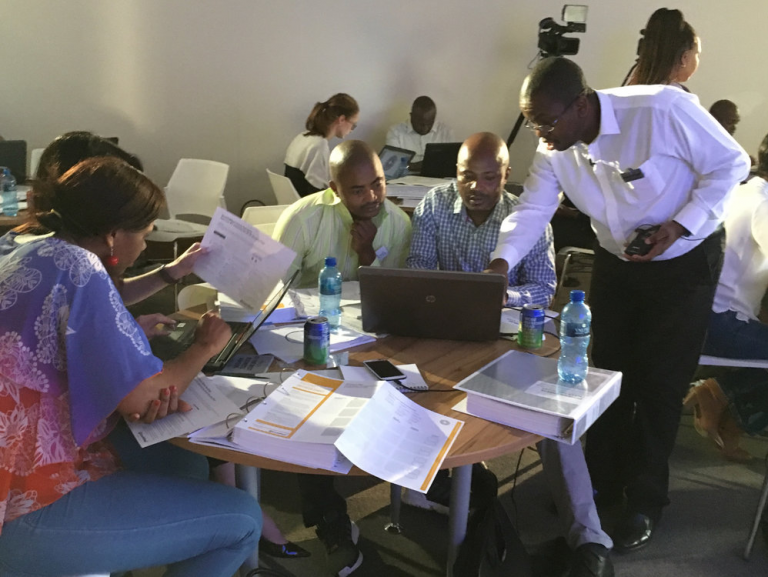
The world is no doubt rapidly evolving into a digital era, with new technologies and technological advancements sweeping across the globe.
Economies are also rapidly evolving, as a lot of firms will mandate their employees to upskill so that they can leverage off new technologies thereby improving efficiencies in the workplace.
The world economic forum estimates that automation and Artificial Intelligence will displace 75 million low-skilled jobs by 2022 which is already happening. What this implies is that the future will only be favourable to those who possess relevant digital skills as this will enable them to navigate future jobs.
Register for Tekedia Mini-MBA edition 19 (Feb 9 – May 2, 2026): big discounts for early bird.
Tekedia AI in Business Masterclass opens registrations.
Join Tekedia Capital Syndicate and co-invest in great global startups.
Register for Tekedia AI Lab: From Technical Design to Deployment (next edition begins Jan 24 2026).
With the adoption of advanced technology in companies across the globe, new jobs which had not been seen before will emerge. The implication of this is that those who fail to acquire relevant digital skills will be left behind with little or no opportunities leaving them to settle for low-quality jobs.
Different European countries have begun to ensure that their citizens, most especially the youths, are well-equipped with relevant digital skills to take up future jobs. Unfortunately, the workforce in Africa lags in the acquisition of on-demand digital skills.
According to Wikipedia, it has been predicted that by 2030, almost half of the world’s youth will be in Africa, as the number of youths on the African continent will have increased to 42%. This means that the number of young people entering the workforce each year will join millions of others to search for better sources of livelihood.
Unfortunately, the lack of adequate skills have been reported to be one of the factors impeding young Africans in responding to current and future industry needs, which is why the continent still remains underdeveloped.
Currently, it is reported that a large percentage of African youths earn less than $150 per month on average. This statistic is true for African youths due to the fact that most of them lack the necessary relevant skills, which calls for a great need to upskill the workforce in the region.
About 250 million youths in Africa are preparing to enter the workforce with projections that the number would rise to 321 million by 2030. Even after graduating from tertiary institutions, most of the youths in Africa still lack the necessary skills to secure quality jobs.
In order to upskill Africa’s workforce, governments of countries on the African continent need to support private sector programs aimed at educating the youths and upskilling the continent’s workforce, as investments in people and skills in the African region are paramount in propelling the continent to the forefront of the Fourth Industrial Revolution.
GetBundi is an EdTech platform designed to deliver high-quality, engaging, and accessible STEM (Science, Technology, Engineering, and Mathematics) skills, with courses focused on six years of post-primary education as well as STI (Science, Technology, and Innovation) skills has been on a mission to upskill 10 million African in 10 years, labeled “the GETBUNDI vision 2032”.
Therefore, there is a strong need for governments in the African region to collaborate and partner with these Edtech platforms to enable a friendly environment and also eliminate challenges to enable them to thrive to ensure massive upskill coverage across states and nations.
The task of upskilling African youths with the right skills is a huge one which cannot be achieved by one group or firm. It requires a collaborative effort between relevant key stakeholders.
Despite the fact that the government has a major role to play in upskilling Africa’s workforce, there is still a need for partnership with public and private institutions. These collaborations will create room for innovative financial models which will promote upskilling among youths in Africa.
Another effective way to upskill Africa’s workforce is to revamp the educational sector. There is no disputing the fact that the educational curriculum used to teach students in Africa is outdated and needs an overhaul.
This signifies that the educational sector in Africa is inadequate to service the needs of the rapidly evolving world. For an effective impact to be made in upskilling Africa’s workforce, there needs to be the inclusion of digital and technical skills that are relevant in today’s digital economy to be included in the school curriculum.
These skills should be taught at the cradle level which is from the primary level, up to the tertiary level. Doing this will ensure that once these youths become graduates, they are already equipped with relevant skills to take up future jobs which will not only decrease unemployment but also develop the African region through their innovative ideas and technologies.
Expanding Digital Infrastructure is another key strategy to upskill Africa’s youths. The African government must ensure to provide the necessary infrastructure such as building tech hubs, expanding broadband internet coverage and also go as far as providing the youths with laptops, to enable them acquire the needed digital skills.
Conclusion
Digital Upskilling will empower Africans with the knowledge and skills required to participate in a global economy shaped by rapid technological advances such as Artificial Intelligence, robotics, machine learning, cognitive computing, etc.
Africa is a continent on the rise, unfortunately digital skills gap in the continent is an enormous problem which has retarded Africa’s growth. Therefore, upskilling its workforce with relevant digital skills will unlock the potential of African youths and the African continent, which will improve different sectors that will no doubt create a healthy and wealthy economy for all.



